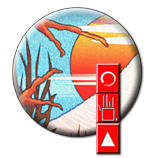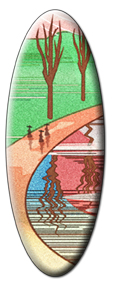On The Way: The Daily Zen Journal
Journal of My Study in China
Dogen (1200-1253)
I wrote to Master Ruijing shortly before I met him:
“When I was young I aroused the aspiration for enlightenment and visited various monasteries in my country. I had some understanding of the principle of cause and effect; however, I was not able to clarify the real source of Buddha, dharma, and sangha. I was only seeing the outer forms, the marks, and names. Later I entered the chamber of Eisai, Zen master Senko, and for the first time heard the teaching of the Linji School.
“Now I have accompanied Monk Myozen to the flourishing kingdom of Song China. After a voyage of many miles, during which I entrusted my phantom body to the billowing waves, I have finally arrived and have entered your dharma assembly. This is the fortunate result of my wholesome roots from the past.
“Great Compassionate Teacher, even though I am only a humble person from a remote country, I am asking permission to be a room-entering student, able to come to ask questions freely and informally. Impermanent and swift, birth-and-death is the issue of utmost urgency.

“Time does not wait for us. Once a moment is gone it will never come back again, and we’re bound to be full of regret … grant me permission to ask you about the way, about the dharma.”
Rujing wrote back, “Yes, you can come informally to ask questions any time, day or night, from now on. Do not worry about formality; we can be like father and son.” And he signed it, “Old man at Mt. Taibo.”
On the second day of the seventh month … 1225 I entered the abbot’s room and asked, “Nowadays in many places they talk about transmission outside the teaching. They call this ‘the essence of Bodhidharma’s coming from India.’ How do you understand this?”
Ruijing said, “The great road of Buddha ancestors is not concerned with inside or outside. The reason they call it transmission outside the teaching is this: although Kashyapa Matanga and others had transmitted the teaching to China previously, in coming here from India Bodhidharma brought the teaching to life and showed the craft of the way. This is why they call it transmission outside the teaching.
Rujing said, “Those who say that sentient beings are already buddhas are really professing a belief in spontaneous enlightenment. This view is not at all in accord with the way. To equate ‘I’ with Buddha is to mistake unattainment for attainment and unenlightenment with enlightenment.”
I asked, “When we students practice the way, how should we cultivate the mind in the midst of ordinary activity, while walking, sitting, standing, or lying down?”

Rujing said, “When Bodhidharma came from India, the body and mind of Buddha-dharma truly entered China. Here are some things to pay attention to when you first undertake dharma study: Don’t spend a long time sick in bed; don’t travel far away; don’t read or chant too much; don’t argue too much; don’t overwork; don’t eat leeks and onions; don’t eat meat; don’t drink too much milk or honey; … don’t pay attention to matters of fame and fortune … instead look at mountains and streams.
“Illuminate the mind with ancient teachings and read sutras that contain complete meanings. When the body and mind are confused, chant the beginning of the text called ‘the bodhisattva precepts’.”
I asked, “The nature of all things is either good, bad, or neutral. Which of these is the Buddha-dharma?”
Rujing said, “The Buddha-dharma goes beyond these three.”
I asked, “The wide road of the Buddhas and ancestors cannot be confined to a small space. How can we limit it to something as small as ‘the Zen School’?”
Rujing said, “To call the wide road of the buddhas and ancestors ‘the Zen School’ is thoughtless talk. ‘The Zen School’ is a false name used by bald-headed idiots, and all sages from ancient times are aware of this.
Rujing said, “Studying Zen is dropping of mind and body. Without depending on the burning of incense, bowing, chanting Buddha’s names, repentance, or sutra reading, devote yourself to just sitting.
I asked, “What is dropping of mind and body?”
Rujing said, “Dropping of mind and body is zazen. When you just sit, you are free from the five sense desires and the five hindrances.”
I asked, “Is this freedom from the five sense desires and the five hindrances the same as what the sutra schools are talking about? Does it mean we are to be practitioners of both the Mahayana and Hinayana?”
Rujing said, “Descendents of ancestors should not exclude the teachings of either vehicle. If students ignore the Tathagata’s sacred teachings, how can they become the descendants of Buddha ancestors?”
Emergence of the True Dharma Eye
Dogen 1226
Source Enlightenment Unfolds – The Essential Teachings of Zen Master Dogen edited by Kazuaki Tanahashi 1999




“This text was found among the late teacher’s posthumous documents. It was in the form of a draft and may not be complete. I shed many tears in my regret that the work was never completed.” Ejo – attendant Monk to Dogen. December 10, 1253
Over the years we have shared many teaching dialogues, most often in the format of an unknown student questioning a very well-known Zen Master. This is one of the most unique dialogues we have, taken from Dogen’s own journal covering his years of study in China with Master Rujing.
The questions could be ones we would have asked also; to study the Way one hears and reads many things, some are sidetracks; others, real pointers to follow. Having a trusted teacher to ask these ultimate questions to is a rare opportunity indeed.
“When we students practice the way, how should we cultivate the mind during ordinary activity, while walking, sitting, standing, and lying down?”
Just to ask this question and hold it close, whether we have access to a teacher or not, often reveals its answer. Rujing’s many comments range from very simple dietary restrictions observed by monks to warnings about getting caught up with name and fame.
The very succinct instruction concerning meditation…
“Studying Zen is dropping of mind and body . Without depending on the burning of incense, bowing, chanting Buddha’s names, repentance, or sutra reading, devote yourself to just sitting.”
and the oneness of his approach, avoiding the sectarian trap of picking and choosing which school’s teachings to follow, give a clear sense of the depth and breadth of this unusual teacher Dogen chose to study with.
Perhaps these notes were never intended for publication as they were discovered after Dogen’s death, but they paint a very personal look into Dogen’s life as a student of the Way himself.
“To study the Buddha way is to study the self. To study the self is to forget the self. To forget the self is to be actualized by myriad things. When actualized by myriad things, your body and mind, as well as the bodies and minds of others drop away. No trace of enlightenment remains, and this no-trace continues endlessly.” Dogen 1233
May we too remain traceless,
Elana, Scribe for Daily Zen